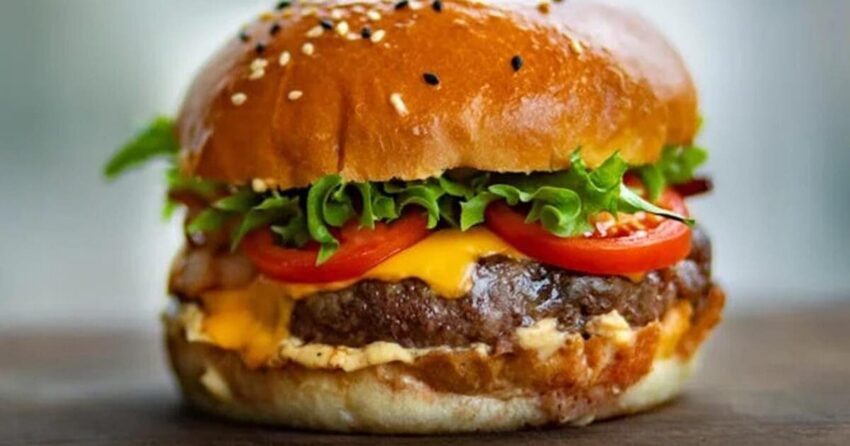Australian supermarkets and fast-food chains are rejecting American beef after restrictions barring their usage were rolled back.
Because of a 2003 outbreak of mad cow disease in the U.S., Australia instituted strict biosecurity laws suspending imports of U.S. beef.
Over a decade later, in 2019, Australia lifted some of its biosecurity restrictions, but only on American beef from cattle literally born, raised, and killed in the United States. Beef from cattle born in Canada or Mexico but processed in America still remained banned.
This all changed last month, when Australia finally agreed to accept all U.S. beef, including beef from cattle born in Canada or Mexico.
U.S. President Donald Trump celebrated the decision:
Donald J. Trump Truth Social 07.24.25 07:58 PM EST pic.twitter.com/HBqlmIjj7N
— Fan Donald J. Trump Posts From Truth Social (@TrumpDailyPosts) July 25, 2025
Agriculture Secretary Brooke Rollins, meanwhile, released a statement attributing the new policy to the president’s acumen.
“This is yet another example of the kind of market access the President negotiates to bring America into a new golden age of prosperity, with American agriculture leading the way,” she said. “It’s absurd that non-scientific trade barriers prevented our beef from being sold to consumers in Australia for the last 20 years.”
But it appears the celebration was premature.
The grocery chains Woolworths, Coles, and Aldi, in addition to the fast-food chain McDonald’s, have all since vowed not to import U.S. beef now that it’s available, according to news.com.au.
“Aldi, Coles, McDonald’s and Woolworths all say Australian customers will be eating homegrown beef,” instead, news.com.au reported.
“We apply an Australia-first approach, and 100 per cent of our fresh red meat is sourced directly from Australian farmers, with whom we have longstanding relationships,” a Woolworths spokesperson told the outlet.
“We’ll continue to source 100 per cent Aussie beef for our menu and provide our customers with the great taste, quality, and value they know and love,” a McDonald’s spokesperson likewise said.
There’s supposedly a valid reason for this preference.
“U.S. and Australian beef also tastes different,” Reuters notes. “Many Australians like the grass-fed beef raised there, not marbled beef from U.S.-raised cattle that are generally fed with grain.”
There’s also the fact that the U.S. is reportedly suffering from a beef shortage.
Beef has never been more expensive:
USDA ground beef retail prices have surged to a record $6.10 per pound.
Over the last 3 years, beef prices have risen by over +50%, driven by a severe cattle shortage.
Ranchers have slashed herds due to high interest rates, expensive feed,… pic.twitter.com/g0qBhll1OV
— The Kobeissi Letter (@KobeissiLetter) July 29, 2025
“We can’t get enough beef in the U.S. right now, so we’re bringing it in from Australia and Brazil,” independent U.S. livestock trader Dan Norcini told Reuters. “We’re not going to be selling anything significant to anyone.”
“We just aren’t in a position to export much beef to anyone, and the reality is Australia doesn’t really have much need for U.S. beef,” Karl Setzer, a partner at Consus Ag., added.
All this comes amid controversy surrounding Trump’s trade war and tariffs.
Australia’s opposition party has claimed that the ruling party only lifted its biosecurity restrictions to get a better tariff rate from Trump.
Kevin Hogan, the deputy leader of the Nationals (one of the opposition groups), accused his country’s government of using “our science-based biosecurity standards as a bargaining chip.”
“We have the US Trade Representative Jamieson Greer directly connecting this decision to the US-Australia trade relationship, but the Albanese Government is saying the complete opposite,” he said, according to The Guardian.
News.com.au notes that following Australia’s change in biosecurity policy, Trump “slapped Australia with the lowest of its universal tariff rates, applying a 10 per cent levy on Australian exports.”
Australian farmers have also raised some concerns, but for different reasons:
Australian farmers are concerned that the government’s decision to drop biosecurity measures for beef imports to the US will ruin their ‘clean and green’ reputation. #beef #beefimports #beefindustry #agriculture #biosecurity #usa #trump #tariffs #7NEWS pic.twitter.com/T2gCLfpY4C
— 7NEWS Australia (@7NewsAustralia) July 24, 2025
They’re mainly worried that allowing beef from cattle born in Mexico or Canada will ruin the country’s “clean and green” reputation.
In fact, Cattle Australia, the country’s peak body representing the grass-fed cattle industry, has called for an independent scientific panel to review the federal government’s decision to lift biosecurity restrictions.
Click this link for the original source of this article.
Author: Vivek Saxena
This content is courtesy of, and owned and copyrighted by, https://americanwirenews.com and its author. This content is made available by use of the public RSS feed offered by the host site and is used for educational purposes only. If you are the author or represent the host site and would like this content removed now and in the future, please contact USSANews.com using the email address in the Contact page found in the website menu.








